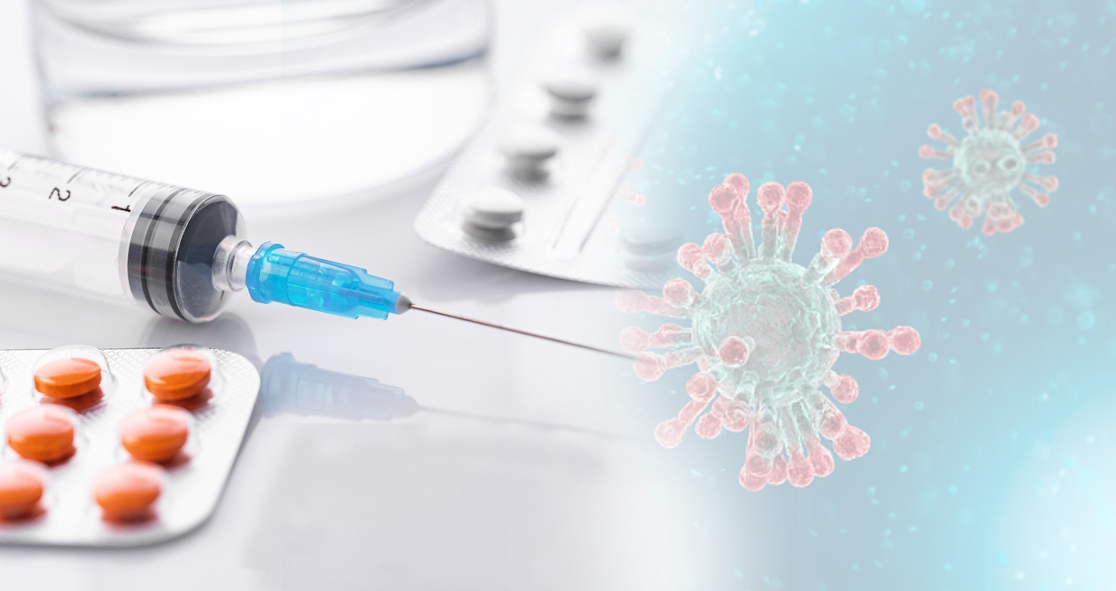Amend ongoing concerns over the global coronavirus spread, researchers and pharma companies are leaving no stone unturned in developing drugs and vaccines using various different technologies.
Virologist Dr. Benjamin Neuman from Texas A&M University-Texarkana said that developing a vaccine against the pathogen is a long shot because there has never been a successful vaccine against any species of the coronavirus family.
Dr. Neuman said, “This is going to be a lot of trial, a lot of error, but we have a lot of options to try.”
Coronavirus treatment may come sooner because an antiviral drug called remdesivir has been showing early promise in clinical trials.
President Donald Trump has urged researchers and pharma companies to speed up the process but many experts say fundamental constraints could leave little flexibility.
H. Holden Thorp, who is the editor-in-chief of the journal Science, wrote, “A vaccine has to have a fundamental scientific basis. It has to be manufacturable. It has to be safe. This could take a year and a half or much longer.”
“Pharmaceutical executives have every incentive to get there quickly—they will be selling the vaccine after all—but thankfully, they also know that you can’t break the laws of nature to get there,” Thorp added.
Who is involved in developing coronavirus drugs and vaccines?
Gilead Sciences: This California-based biotechnology company develops remdesivir, a drug that was created to treat Ebola. Although it has not been approved for any infection, remdesivir is showing promising results in treating the new coronavirus, or COVID-19. The drug might be approved for use later this year if found safe and effective.
WHO official Bruce Aylward said, “There’s only one drug right now that we think may have real efficacy. And that’s remdesivir.”
Moderna Therapeutics: This Massachusetts-based biotechnology company is in the race to develop a coronavirus vaccine, which is undergoing human trials and is expected to come in 12 to 18 months if found safe and effective. The National Institutes of Health (NIH) has been working with Moderna to make a vaccine using genetic code.
Regeneron Pharmaceuticals: This New York-based pharma company is involved in developing coronavirus drugs and vaccines. Last year, it developed an intravenous drug that was found to significantly boost survival rates among patients with Ebola using “monoclonal antibodies.”
Regeneron’s vice president Christos Kyratsous said, “If everything goes well, we should know what our best antibodies are within the next few weeks,” with human trials to begin by summer. The company said the drug world treat as well as prevent COVID-19. However, it is unclear when it will hit the market because it is still under pre-clinical studies.
Sanofi: This French multinational pharmaceutical company is teaming up with the U.S. government to develop a vaccine using genetics. Sanofi’s head of vaccines, David Loew, said the company expects to have a vaccine for lab testing within six months and for human trails within 18 months.
Inovio Pharmaceuticals: This Pennsylvania-based biotechnology company has worked on DNA vaccines. It is developing a vaccine to prevent coronavirus. The company’s CEO J. Joseph Kim said, “We plan to begin human clinical trials in the US in April and soon thereafter in China and South Korea, where the outbreak is impacting the most people. We plan on delivering one million doses by year-end with existing resources and capacity.”
GlaxoSmithKline: This British drugmaker has collaborated with a Chinese biotech firm to provide adjuvant platform technology and develop a vaccine that can enhance the immune response. Other companies such as CureVac, Vir biotechnology, and Johnson & Johnson have been working to develop coronavirus drugs and vaccines.























